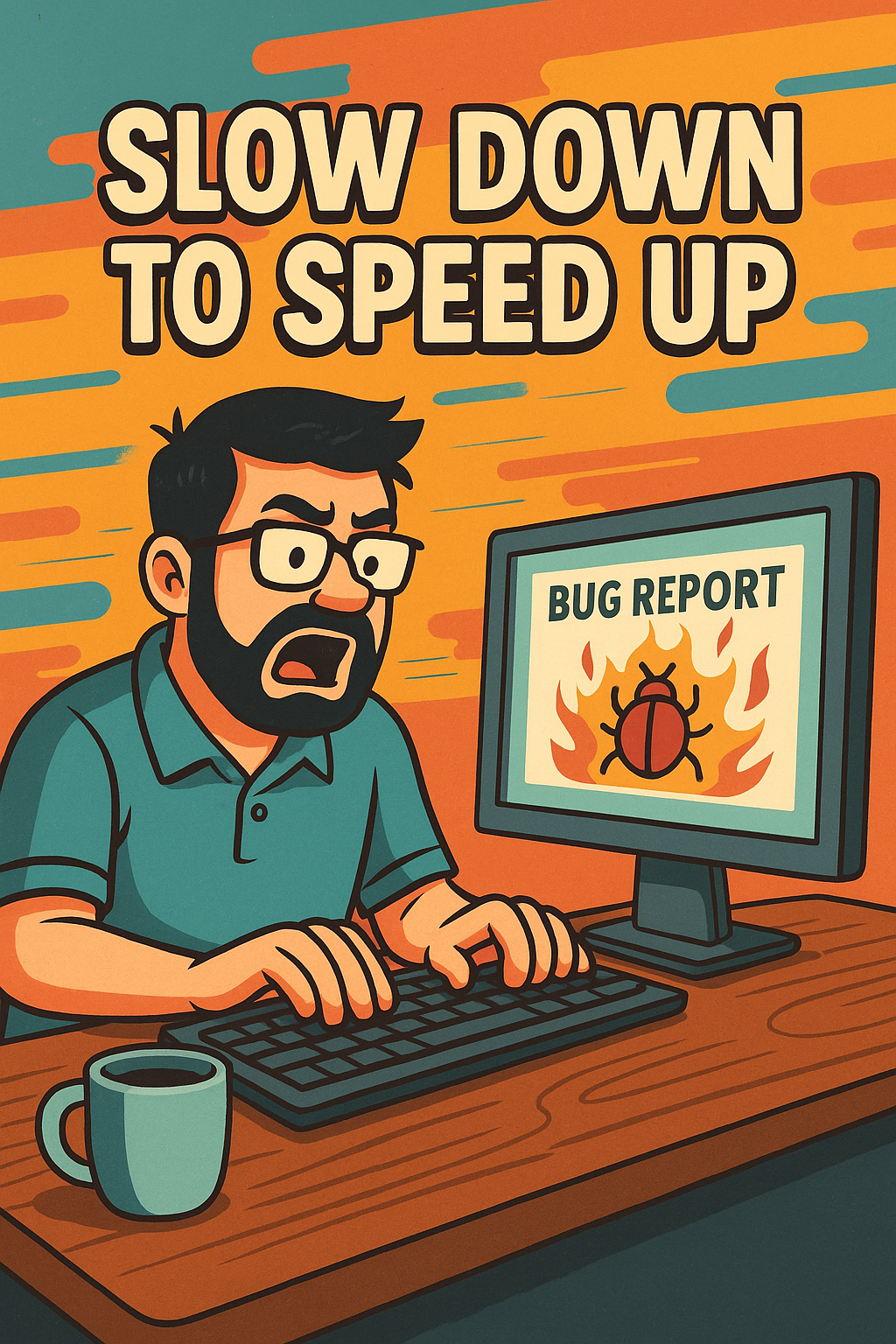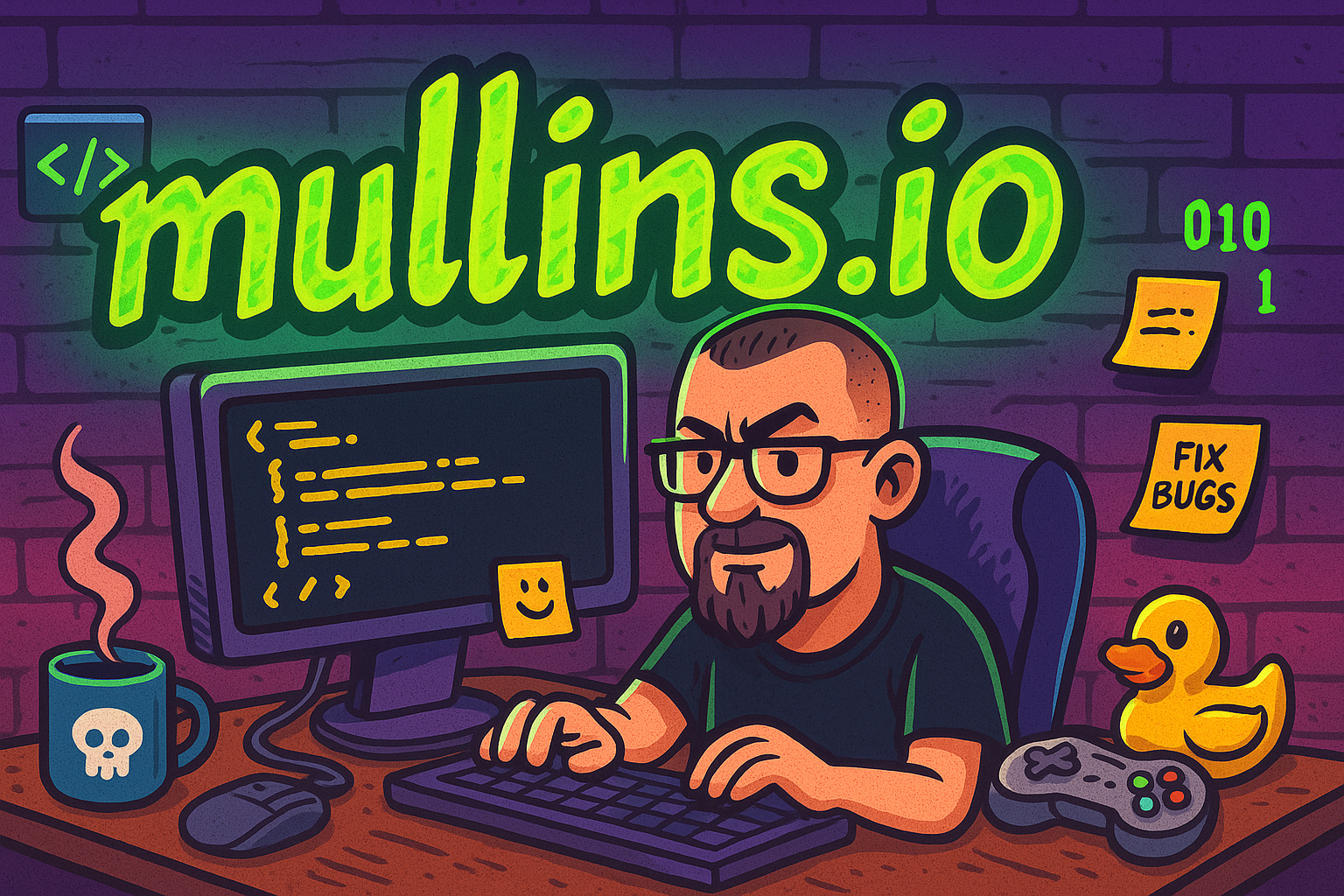Slow Down to Speed Up

You’ll fix the problem faster if you stop rushing to fix the problem.
I know it sounds backwards.
You're thinking, “Wait, how can slowing down make me move faster?”
Let me paint a picture.
You just launched a massive project to production. You're feeling good. You’re riding the high of months of hard work finally going live.
And then—bam.
A bug report comes in.
Worse, it's a blocker.
Users can’t access your shiny new feature.
Everything’s on fire. Your heart rate spikes. Your brain’s already chasing down suspects in the code.
And that’s when you mess up.
Step 1: Resist the Reflex
Your gut instinct says,
“Dive into the code! Fix it now!”
But here’s the truth: that instinct can cost you more time than it saves.
Instead, slow down.
Read the bug report.
Walk through the steps to reproduce.
Understand what’s actually happening.
Verify it’s even a real bug.
Because sometimes?
It’s not a bug.
It’s a bad network.
It’s a user clicking out of order.
It’s someone not clearing cache.
It’s a misunderstanding of how the feature works.
Fixing a bug that doesn’t exist = wasted time.
Fixing the wrong bug = wasted time.
Rushing into the code = wasted time.
Slowing down to assess = time well spent.
Channel Your Inner Mechanic
If your car’s making a weird noise, you don’t want the mechanic to rip out the engine immediately. You want them to:
- Listen to your report
- Ask questions
- Diagnose the issue
- Fix the actual problem
The same logic applies to code.
Here’s How I Slow Down (on Purpose)
When a bug hits production, here’s what I do:
Take a few deep breaths (seriously, it works)
Open the bug report
Reproduce the issue if possible
Check logs, network requests, or user actions
Fire up my editor and debugging tools only once I have a plan
I might even throw on some calming background music. (Lo-fi beats fix more than you’d think.)
Slow is Smooth, Smooth is Fast
We move fastest when we move with purpose.
Not panic.
Not reaction.
Intention.
Slowing down helps you zoom in on the right problem. It prevents context switching, avoids wild guesses, and makes sure you're fixing what actually matters.
Unless you’re working on life-critical systems, you can afford a moment to breathe. And ironically, that breath might save hours.
TL;DR
Don't jump straight into code just because something broke.
Confirm the problem, understand the context, then act.
Move slow enough to think, fast enough to stay useful.
Next time production breaks?
Breathe. Focus. Then fix.
✊ mullins.io
Dev advice from someone who’s broken prod, fixed it, and then broke it again.
Hey, since you made it this far, you might actually care about becoming a better leader.
Good news: I wrote an ebook that’ll help you skip years of trial and error.





Comments ()